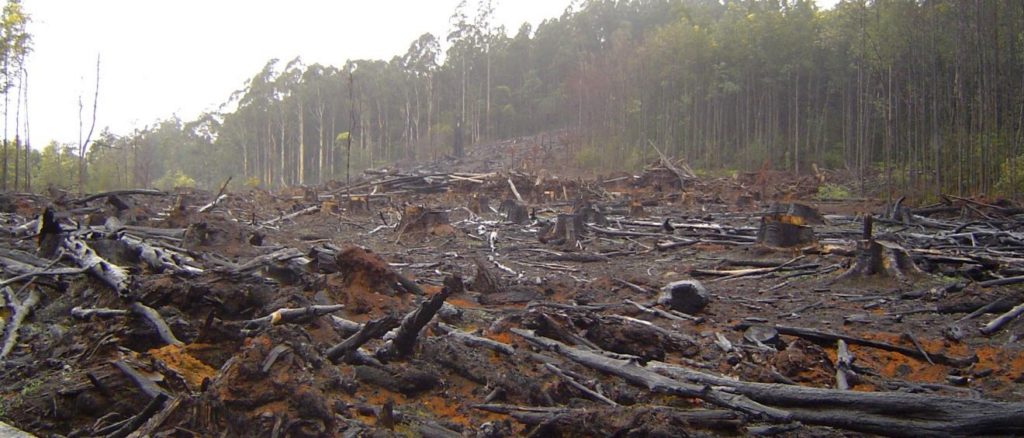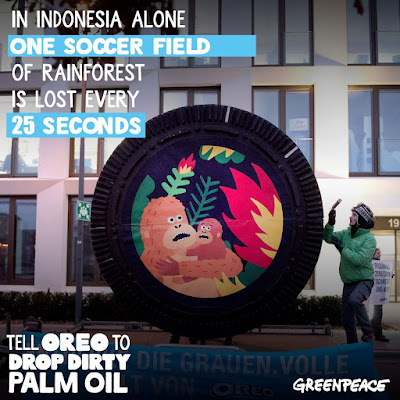
It has been 15 years since the world’s biggest palm-oil trader, Wilmar International, clarified their commitment to NDPE—“No Deforestation, No peat, No exploitation”. A principle that should dominate the industry and has been pledged to obey by major global brands which consume the enormous amount of palm oil yearly. However, the cruel reality indicates that tropical rainforests are still disappearing in a terrifying pace: Between 2015 and 2017, around 1.6m hectares of rainforests[1] in Indonesia were devastated (almost half the size of Taiwan), and a fifth of its deforestation took place in palm oil concessions.[2] All these catastrophes might surprisingly derive from the crunchy Oreos that pile up your snack plate every day.

“Pledges, principles, but not actions” is where all the stories begin. These global brands, such as Mondelez, Nestle, Danone, Unilever, were obliged to take their responsibility for a sound monitoring system that scrutinized each palm oil producer in the supply chain to comply with NDPE principle-A regulation which is hard to pull off in the recent days since most of the producer groups have no ultimate company, but consist of privately held companies held by family or individuals.[3] While these global brands believe their palm oil is sourced from a producer’s NDPE-compliant plantation, other ones in the same group might be wiping out rainforests elsewhere for commercial purposes. That is why a comprehensive concession map, which reveals if the palm oil origins from NPDE-compliant, is necessary and should be instantly applied to the whole industry.
Like the majority of people, if you are thinking that deforestation is only concerned with climate-change issues, you still see only the tip of icebergs. It is an ecological or even a human disaster. Deforestation is one of the major sources of greenhouse gas emissions and has pushed Indonesia into the top tier of global emitters, alongside the US and China.[4] More than 100,000 people will die prematurely from the respiratory diseases linked to 2015 haze in Indonesia, according to the researchers at Harvard and Columbia University.[5] In Indonesia, results from the extreme loss of habitat, endangered animals suffer from an extraordinary diminution of their population. Take Bornean orangutan for example, its numbers fell by over 50% in merely six years between 1999 and 2005.[6] The child labors, pesticide exposition, and minimum wages also haunt the residents while the palm-oil industry is sometimes referred to as “lifeline” for the local economy.

That’s why this year, activists around the whole world have acted up to force these conglomerates to drop dirty palm oil. They climbed up to the top of the tanks at Wilmar’s refinery in Sulawesi, dropped the sign to warn everyone about its dirty transaction; they sent the “Deforestation” flavor Oreo to the headquarter of Mondelez which broke its sustainable promise while branding its cookie as the most popular one in the world. In UK, Indonesia, and even Taiwan, people walked down the street to advocate, to educate their fellows that customers are actually the most powerful individuals who are capable of pushing all these corporates to take actions and ensure that their profits are not built on the exploitation of lands and well-being of lives. Once these tragedies are eventually halted, that’s the moment we can truly indulge in the guilty pleasure of these crunchy chocolate biscuits.
By Chris Chang for Collective Green
[1] Greenpeace mapping analysis, [2] Greenpeace mapping analysis, [3] Greenpeace_FinalCountdown_LowRes P15, [4] Greenpeace_FinalCountdown_LowRes P2, [5] Koplitz SN et al (2016), [6] Greenpeace_FinalCountdown_LowRes P2

